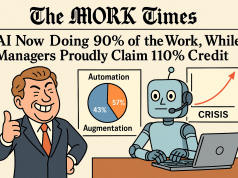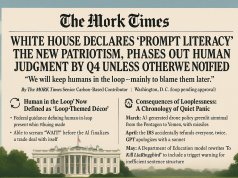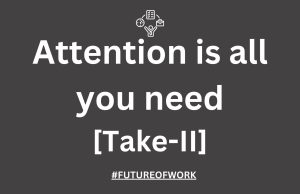As the gig economy balloons, the modern job seeker rides a wave of opportunity unparalleled in history. Yet, this sea of potential gigs often leads to the Paradox of Choice, a psychological phenomenon where an abundance of options results in anxiety and decision paralysis. The Work Times delves into the heart of this paradox, uncovering the impact on individuals striving to chart their career paths in a world where ‘choice’ is both a luxury and a burden.
The Paradox of Choice, coined by psychologist Barry Schwartz, suggests that having too many options can lead to increased stress, anxiety, and dissatisfaction. In the gig economy, where one might choose from an array of short-term jobs or freelance opportunities, the vastness of choice has transformed the job market into an endless buffet of potential careers. How does this affect decision-making for today’s job seekers? The freedom to choose appears liberating, but too often, it’s a double-edged sword that cuts into our ability to make decisions confidently.
Consider the psychological impacts: a job hunter may experience analysis paralysis, the crippling inability to make a decision when faced with multiple options. This paralysis is not just about choosing a job; it’s about making a life choice. Each gig represents a different trajectory, a different version of one’s future self. With each decision carrying significant weight, the fear of making the wrong choice can be overwhelming.
To effectively navigate this maze of options without succumbing to paralysis, job seekers must develop a personal framework for decision-making. This involves self-reflection to understand one’s long-term career goals, values, and preferences. Identifying the roles and companies that align with these core principles can cut through the noise.
Some practical strategies include:
– Prioritizing opportunities based on how they align with your career goals and values.
– Setting strict criteria for what constitutes a ‘good opportunity,’ such as company culture, compensation, and growth potential.
– Embracing ‘satisficing’ – a decision-making process that aims for a satisfactory solution rather than an optimal one.
– Limiting the number of options considered at one time to prevent overload.
Drawing parallels with consumer choices, where an excess of products can lead to shopper’s fatigue, job hunters can apply similar lessons to streamline their job search. A more focused approach, akin to a ‘capsule wardrobe’ for careers, can mitigate the negative effects of the paradox.
Comparing this modern challenge to past generations, who had more limited options, raises questions about the impact on mental health and professional development. While previous generations may have had fewer choices, they often enjoyed a clearer sense of direction and commitment. Today’s workers, conversely, may grapple with persistent ‘what ifs’ and the fear of missing out on better opportunities.
As The Work Times encourages readers to critically assess the quantity and quality of opportunities they pursue, it’s crucial to remember that an overabundance of choices can obscure the path to fulfillment. By applying deliberate strategies and mindfulness to the job hunting process, candidates can find clarity amidst chaos and thrive in the gig economy.
In conclusion, while the gig economy offers a vast landscape of opportunities, it is the adept navigator who will find their course and sail towards a fulfilling career. By understanding and addressing the complexities of the Paradox of Choice, job seekers can tame the tumultuous seas of the modern job market and anchor themselves in positions that promise both satisfaction and growth.




























